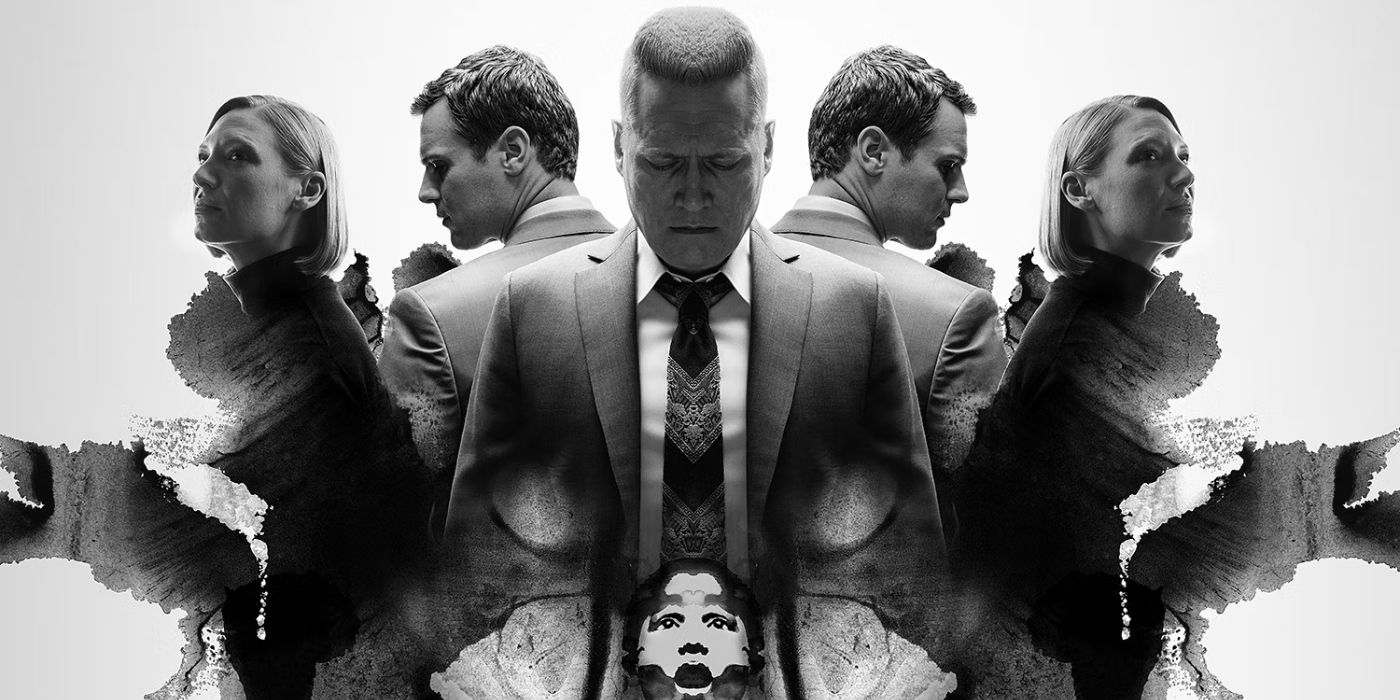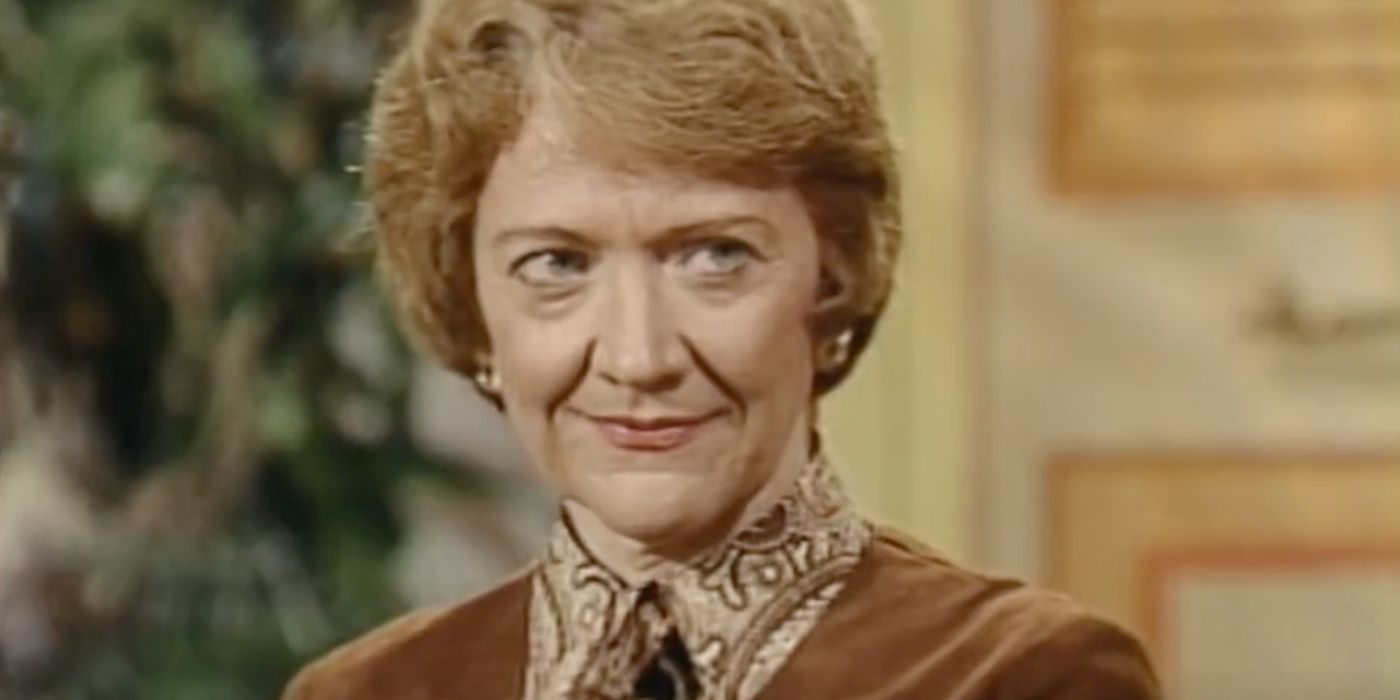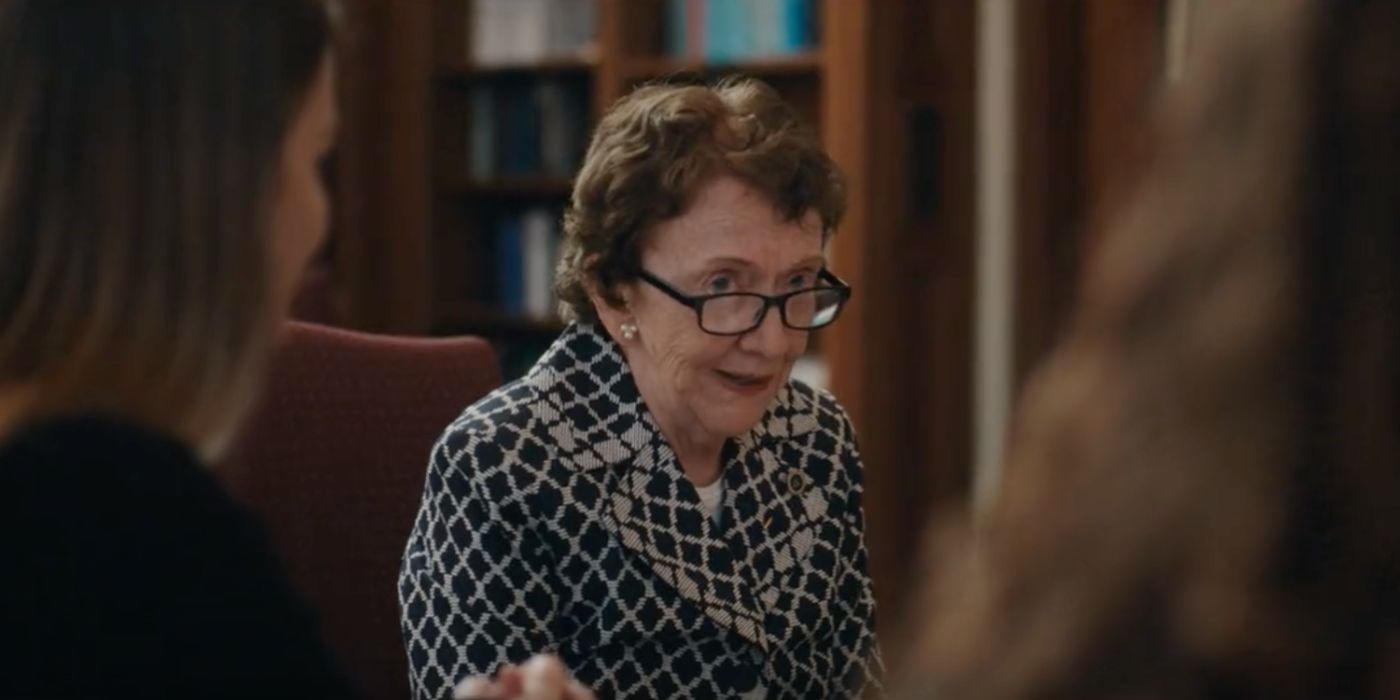The Big Picture
-
Mastermind: To Think Like a Killer
delves into criminal profiling of serial killers, focusing on Dr. Ann Wolbert Burgess and her work at the FBI. - The docuseries explores Dr. Burgess’s significant contributions to understanding violent criminals.
-
Mastermind
highlights the sexism faced by Dr. Burgess and the challenges she overcame in her work.
The attempt to gain insight into captured serial killers in Mindhunter made for unsettling, thought-provoking, deliciously acted two seasons of TV. Created by Joe Penhall, the series was another Netflix project in which David Fincher put his directing style on as the recurring director, executive producer, and showrunner, with a tone that was close to Zodiac. Low viewership ended up putting Mindhunter in an early grave, and if fans are still heartbroken over the loss of what Season 3 could have been, a new docuseries on Hulu will scratch that true crime itch.
Mastermind: To Think Like a Killer brings more of the criminal profiling that viewers will remember while placing a focus on the real figure behind a major character from the canceled Netflix series. The docuseries examines who Dr. Ann Wolbert Burgess was and her contributions to the work done at the FBI’s Behavioral Science Unit. In Mindhunter, Dr. Wendy Carr, played by the underrated Anna Torv, was loosely based on Burgess, with a significant amount of creative liberties taken with the character onscreen. Mindhunter fans and those interested in true crime will be easily pulled into watching Mastermind, as the docuseries takes you back to the crucial role that Dr. Burgess played in researching serial killers to catch the ones that were at large.
Mastermind: To Think Like a Killer (2024)
This true-crime series delves into the minds of some of the most notorious killers, exploring their motives, methods, and psychology. Through interviews, expert analysis, and dramatizations, the show provides a chilling look at how these criminals think and what drives them to commit their heinous acts.
- Release Date
- July 11, 2024
- Main Genre
- Documentary
- Seasons
- 1
What Is ‘Mastermind: To Think Like a Killer’ About?
Across three episodes, Mastermind looks at Dr. Ann Wolbert Burgess, a pioneer of criminal profiling during her time with the Behavioral Science Unit. As a professor of nursing at Boston College, Burgess’ work in getting rid of the stigma of discussing and investigating rape cases brings her to the attention of the FBI. She is assigned to help agents understand how to talk about and better understand sex crimes. This opportunity then leads her to join the Behavioral Science Unit, a small academic branch that was placed in the basement of Quantico, where Burgess helps to fix the unstructured methods of FBI agents John E. Douglas and Robert K. Ressler to properly study the psychology of a violent criminal.
Mastermind places the spotlight entirely on Burgess. A feature-length documentary isn’t enough, not with the time this docuseries is given to cover multiple decades, from the 1950s to the modern day, in a nonlinear structure on Dr. Burgess’ personal life, and her career where she achieves success at the BSU with the FBI agents. Steven Constantine, co-author with Burgess on A Killer By Design, said in an interview that she, “was the brains of the operation. She saw the potential for using interviews with serial killers to be predictive of who a killer might be.” Viewers who know of the Netflix crime drama will spot the familiar, notorious criminals the BSU focused on.
‘Mastermind’ Is the True Story Behind ‘Mindhunter’
Mindhunter: Inside the FBI’s Elite Serial Crime Unit, the 1995 book by Douglas and Mark Olshaker, was the source of Mindhunter, but the two seasons added in many creative liberties rather than sticking to the facts. It becomes apparent as viewers watch the docuseries that FBI agents Holden Ford (Jonathan Groff) and Bill Tench (Holt McCallany) were based on agents Douglas and Ressler, respectively, with plenty of room given to explore fictional narratives, like Ford’s relationship with Ed Kemper (Cameron Britton) and Tench’s deteriorating family life. The same is true of Dr. Wendy Carr, the character based on Dr. Burgess.
Anna Torv’s performance is absorbing as the steely psychology professor who leaves behind her prospects of tenure in Boston to join the BSU full-time. But along with Ford and Tench, Carr struggles with being submerged in the violent crimes she needs to analyze, and this causes problems in her personal life. Torv said in an interview with The New York Times she read Douglas and Olshaker’s book to prepare for Season 1. “When I started the book, I realized, ‘Oh, she is probably Ann Burgess,’ but we took it so far away from her that I think it would do Burgess a disservice to say that. It’s just a completely different character.” Mastermind shows how different but just as fascinating the real public figure was.

Related
This ‘Mindhunter’ Actor Wanted To Kill His Mother After Being in the Show
Sometimes method acting can go too far.
Dr. Ann Wolbert Burgess Wanted To Protect Lives
Burgess had started as a nurse who wanted to listen and understand the feelings of her patients, especially female sexual assault survivors, which was unheard of at the time. This emphasis on psychology is what she then wanted to apply to her work going forward. Outside of Burgess’ career, she had a loving family. She was a mother with several children who adored her and was happily married to a husband who supported her work with the BSU. It would seem likely that Mindhunter created Wendy Carr as a lesbian to emphasize the series’ theme of unsatisfying personal lives for its central trio who suffer from inner turmoil, in Season 1 and Season 2.
Unlike Dr. Burgess, a straight woman with a family, the queerness of Dr. Carr inserted another layer of separation between her work and personal life as she remained in the closet due to the time period. Viewers realize Anna Torv’s ex-professor (with no background in nursing) may have a high intellect, but it mattered little when it came to how she struggled with her romance with bartender Kay (Lauren Glazier), where they were opposites who were attracted to each other — until they weren’t. The warmer home life for Burgess seen in Mastermind contrasts with the morbid work she did with the FBI, and what is even more surprising is the sense of humor Burgess displays across these three episodes.
In a story told by Burgess, she learned how to fly a plane, chuckling about it as she said, “And I was really good, except on the landings. Which was kind of crucial.” Despite the success Burgess was providing with the BSU, she faced sexism among her colleagues. It was ingrained in the “boys club” that was the FBI, and her absence in a publicized photo of the “male” BSU team is a glaring sign of this. Mastermind: To Think Like a Killer doesn’t shy away from pinning down sexism in the workplace as an obstacle for Burgess, along with other challenges, such as when she admits in an interview how difficult it was to separate work from her personal life.
Understanding Serial Killers Is Harrowing Work
True crime can fall into reckless sensationalism when it fails to recognize those who were harmed, be it the survivors, the victims, or the victims’ families. Mastermind is not an anti-true crime project, yet while it name-drops killers or includes audio recordings of their interviews, they are context to understanding Dr. Burgess’ goal. She recalls how she wasn’t able to save the life of a kidnapped child during one case she helped in. Having children of her own, she felt the loss with a sharper pang. “When you’re looking for who you can influence to change a broken system, the FBI was the top of the list,” Dr. Burgess said about her joining the BSU. “So I felt I could make a difference.”
Dr. Burgess created the questionnaire the FBI agents would use in their interviews to ensure the data they collected was organized and then her goal was to advance it to allow local law enforcement to apply it. There is a mention of the arrest of the BTK Killer in Mastermind, who fans of Mindhunter would know is the killer that was never caught when the show ended. Burgess’ work didn’t stop when she left the BSU though. In Episode 3, she interviewed Erik Menéndez in 1993, where she uncovered sexual abuse was the motive for the Menéndez Brothers killing their parents; she went on to be an expert defense witness during their first trial. Into the 2000s, Burgess helped Andrea Constand, a sexual assault survivor of Bill Cosby.
Currently, Dr. Burgess has not retired. She continues to teach a new generation and work on cases to help bring justice to victims and survivors. Despite the Netflix show’s fictional avenues, both Carr and Burgess had to deal with sexism as the root cause of getting pushed out of the contributions that they made to the BSU. In Mindhunter, Dr. Wendy Carr is denied the opportunity to conduct any more interviews with the imprisoned killers after her second one is deemed a failure, and she is reminded in careful words by her boss that her “place” is in analysis. As for Dr. Burgess, while she had to struggle with sexism in the past, Mastermind: To Think Like a Killer honors a woman who had to prove herself among the FBI’s “boys club” as she achieved trailblazing criminal profiling work.
Mastermind: To Think Like a Killer is streaming on Hulu.
Watch on Hulu






